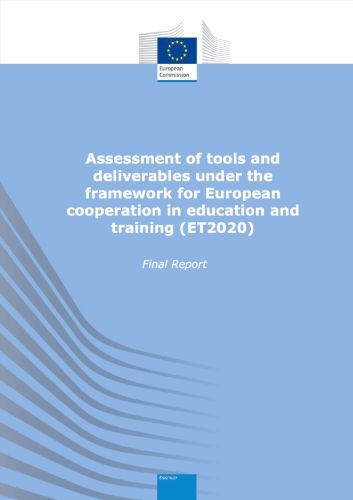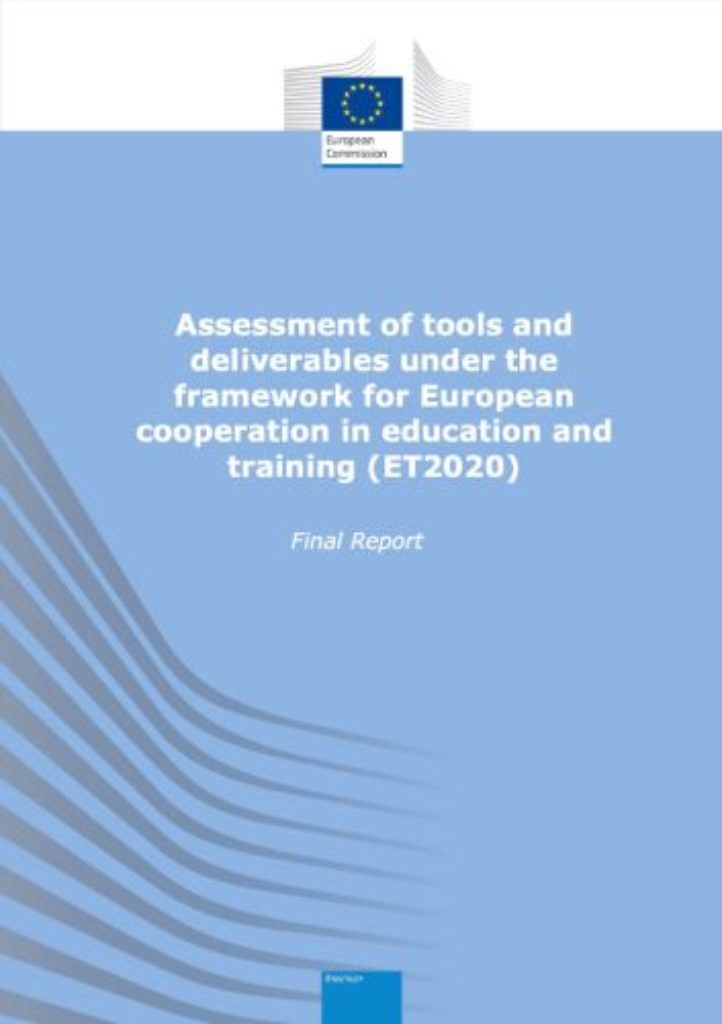Assessment of tools and deliverables under the framework for European cooperation in education and training (ET2020)
Publication date: 8 april 2019 | Report language: EN
The study was undertaken by ICF, in collaboration with Technopolis, in 2018 on behalf of the European Commission’s Directorate-General for Education, Youth, Sport and Culture (DG EAC). The study assessed the tools and deliverables under the current framework for the European cooperation in education and training (ET2020). The main objectives of this assignment were to analyse: i) the performance of ET2020 tools and deliverables in addressing the ET2020 objectives and priorities; ii) the impact of such tools and deliverables at the Member State (and EU) level. The ET2020 framework was adopted in 2009, succeeding the Education and Training 2010 (ET2010) work programme, and is implemented making use of the Open Method of Coordination (OMC). It is based on four strategic objectives which are also expected to support the implementation of the Europe 2020 strategy: – Make lifelong learning and mobility a reality; – Improve the quality and efficiency of education and training; – Promote equity, social cohesion and active citizenship; and – Enhance creativity and innovation, including entrepreneurship, at all levels of education and training. Since 2010, the ET2020 framework has been further refined, including through the 2015 Joint Report. This identified new priority areas (and concrete issues) for further work up to 2020 in order to better align ET2020 with the EU’s political priorities. The ET2020 framework has been organised through various tools and instruments. These include the Working Groups (WGs), mutual learning activities, the Education and Training Monitor, common reference tools developed through the Working Groups and mutual learning activities, and the meetings of the High-Level Group on education and training and the Directors General for Schools, Vocational Training, and Higher Education. The focus of the study has been on the ET2020 tools and deliverables taking place or being produced between the second half of 2015 and the end of 2017. Specifically, it covers 30 mutual learning activities and deliverables (e.g. reports and guides) plus the online platform, Yammer. The study was based on an extensive analysis of the documentation at the EU level and country reports, two stakeholder surveys (covering both stakeholders which have been directly involved in ET2020 tools and those who have not been directly involved), key informant interviews at the EU and national levels, 10 case studies analysing in detail the impact at the national and EU levels and the analysis of feedback received from the Member State consultations. The findings and evidence from the various sources have been systematically triangulated to arrive at the key conclusions and recommendations for the future.





